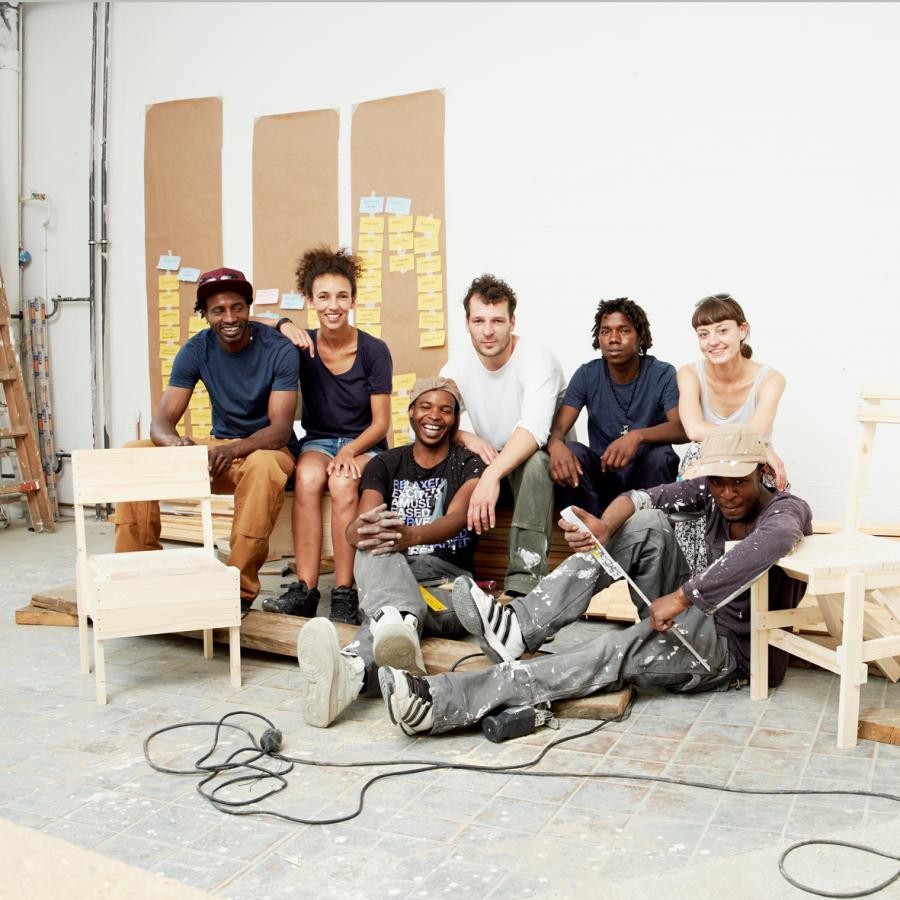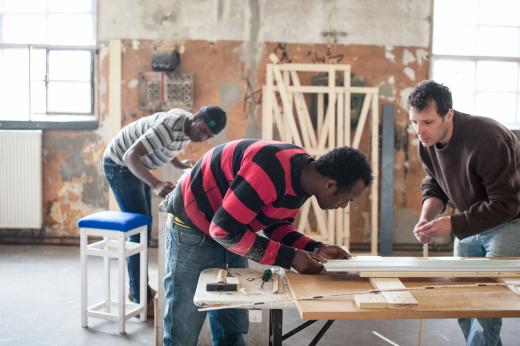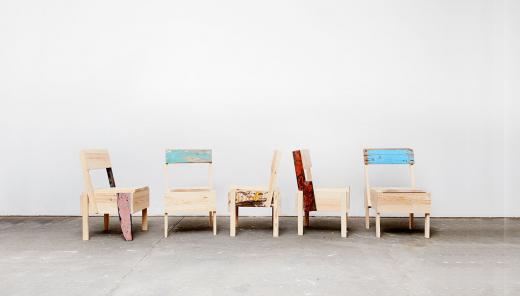Have you met... Cucula
Have you met... Cucula

Olafur Eliasson supports them, and so should you!
Cucula, a refugees company for craft and design is, as they themselves describe it, an association, a workshop, and an educational program, but even more so it is a unique social and design project which helps its protégés to integrate, learn, and thrive.
The innovative approach the design company takes to give young immigrants an education in woodwork and design, by empowering them to build Enzo Mari’s design classics, is a way to push boundaries and create a sustainable and social way to help immigrants build their own future.
For this the Berlin based design company has won the iF PUBLIC VALUE AWARD 2016 and again proved to be one of the most important generators of alternative ways in which society, art and design strive to help actively resolve problems most of us are still just beginning to talk about.
We caught up with one of the founders, Sebastian Däschle, and asked him to give us a short introduction to the amazing work they do.
What was the initial idea and motivation for the company?
First of all there was the encounter with the five refugees and their motivation to take their lives into their own hands. If you get in touch with individuals your common sense tells you what is right and what has to be done.

© Sally Lazic
Cucula distinguishes itself from other local refugee programs - can you tell us more about how this unique approach was developed and what the benefits of it are?
CUCULA in my view is special because it is a initiative acting between social and economics, politics and design. We use the milestone "Autoprogesttazione", DIY design by Enzo Mari from the 70's. By producing design classics the refugees start to be productive on their own, they learn and the profit make by selling the furniture finances their education.
What are the greatest challenges in your work?
It is very hard to make a social Start-Up with 8 people in a intercultural context. So the biggest challenge is to have so challenges without any support from the official authorities.
How would you say design and art can actively help and bring about change?
To live in the “Anthropocene” means that nearly the whole world is shaped by humankind. Our western life style is not sustainable in the social, economic or ecological way. We have to invent a completely new form of living on this planet - a life together, but art and design can give us new perspectives to find a new form.

© Verena Brüning
Being on the scene since the start of the refugee crisis, do you sense a change in the way people are seeing the problem and dealing with it?
First of all there is no refugee crisis! It is a crisis of the globalised systems and a crisis of our society. A society which is so rich like ours can open up their mind, welcome other cultures, learn from them and most importantly learn about itself.
I can see a lot of people starting to be engaged and reflect their own lives and see how blessed they are. On the other hand, there are parts of the society, and this is something one can observe in a lot of wealthy parts (of it), who are afraid because they want to keep it (whealth) away for themselves and build big fences!
What are your current projects and plans for the future?
Like I mentioned before, we have to find a new form for our lives and I think about how this should look like. But rather than thinking about the surface I am searching for its inner meaning.
* * * * *
Find out more about Cucula on their website